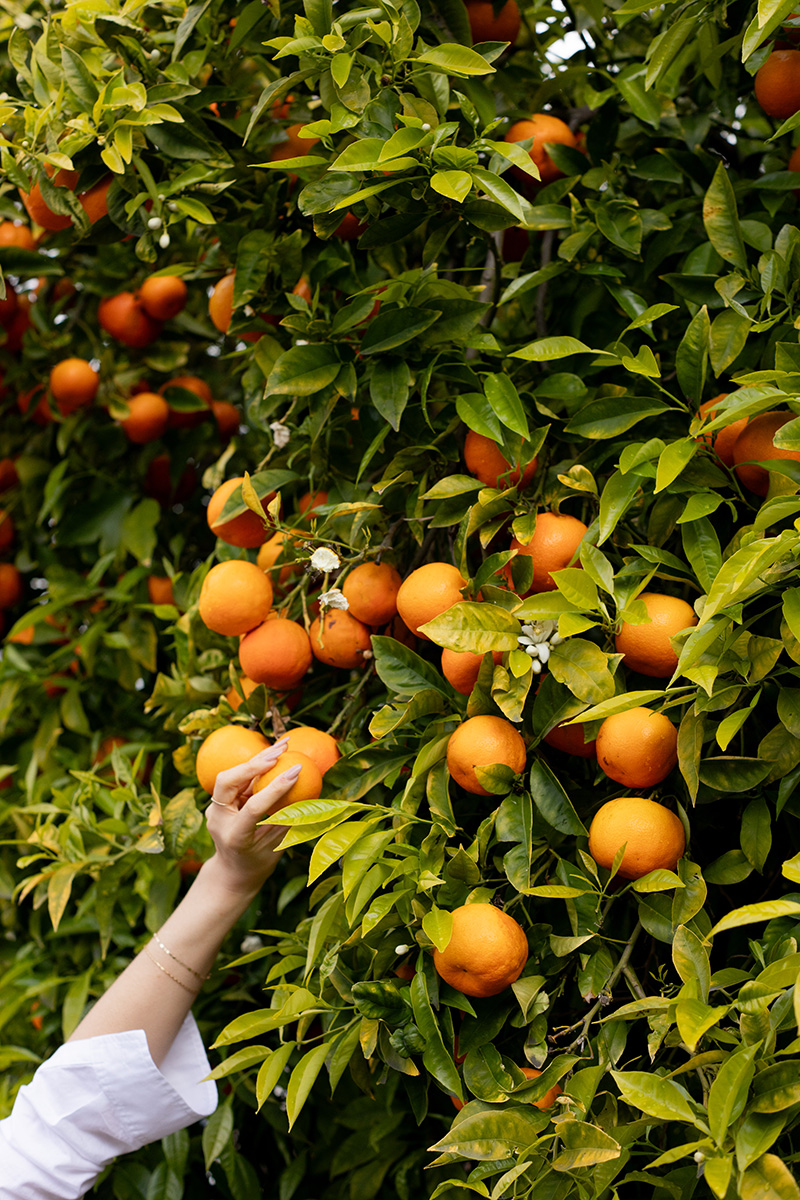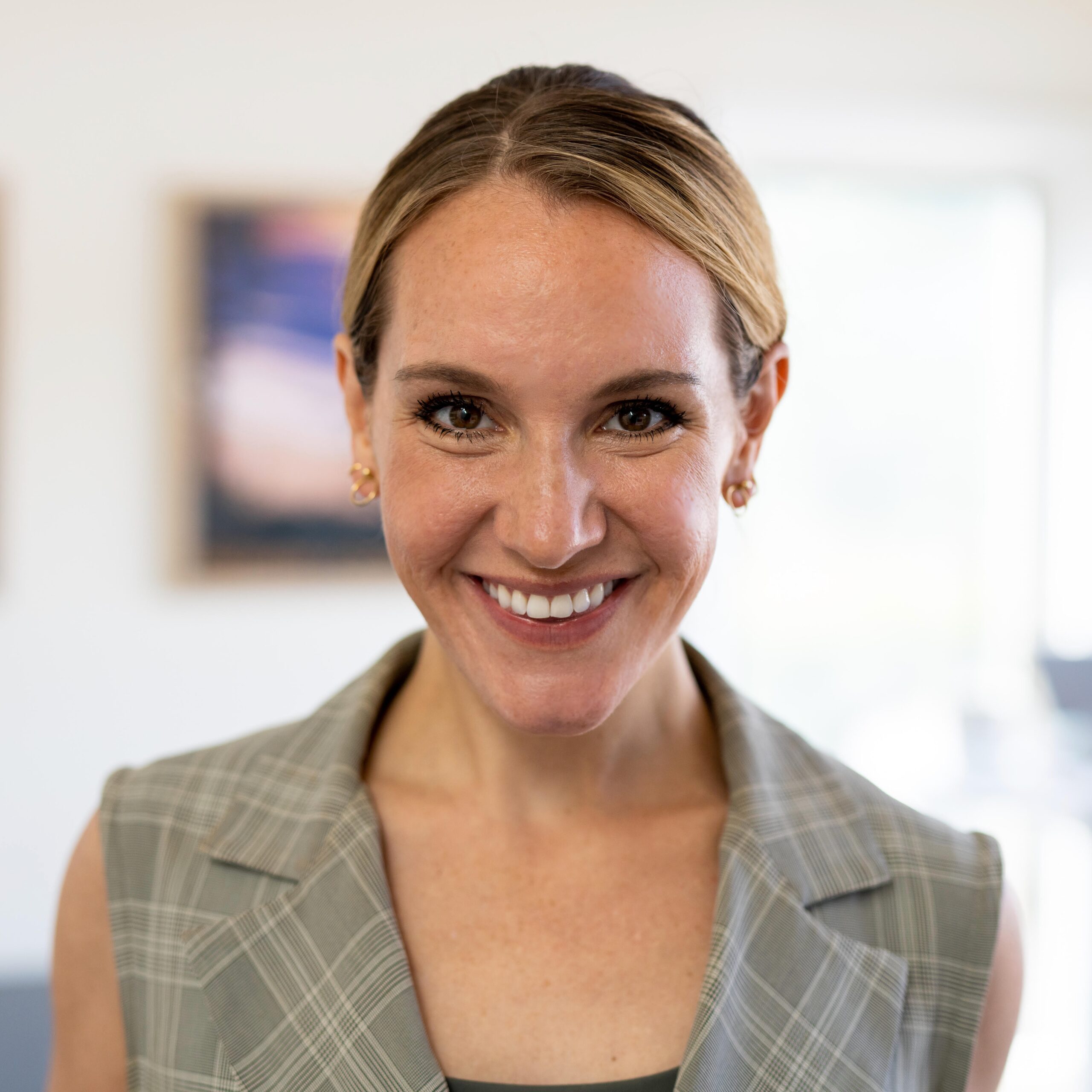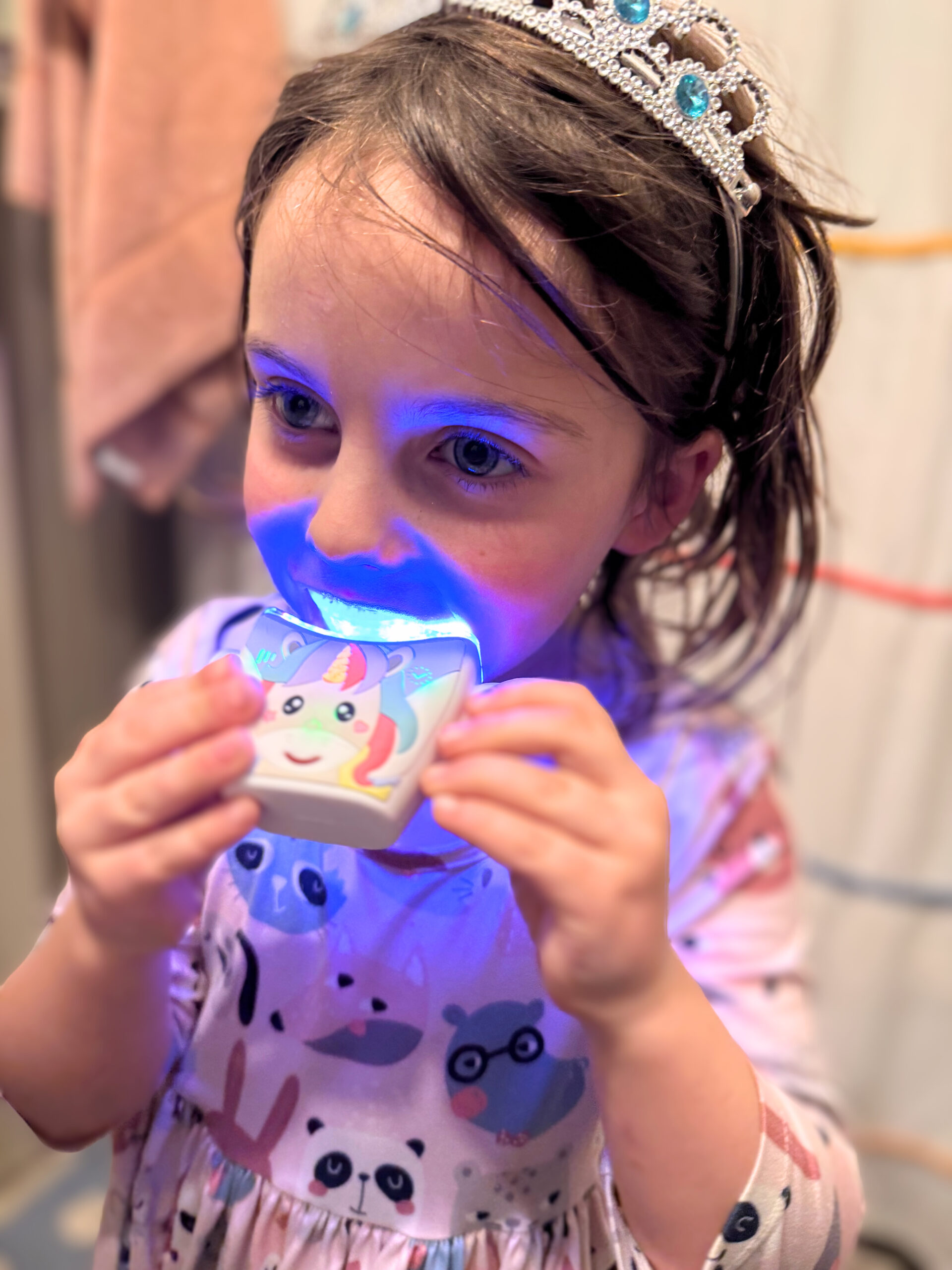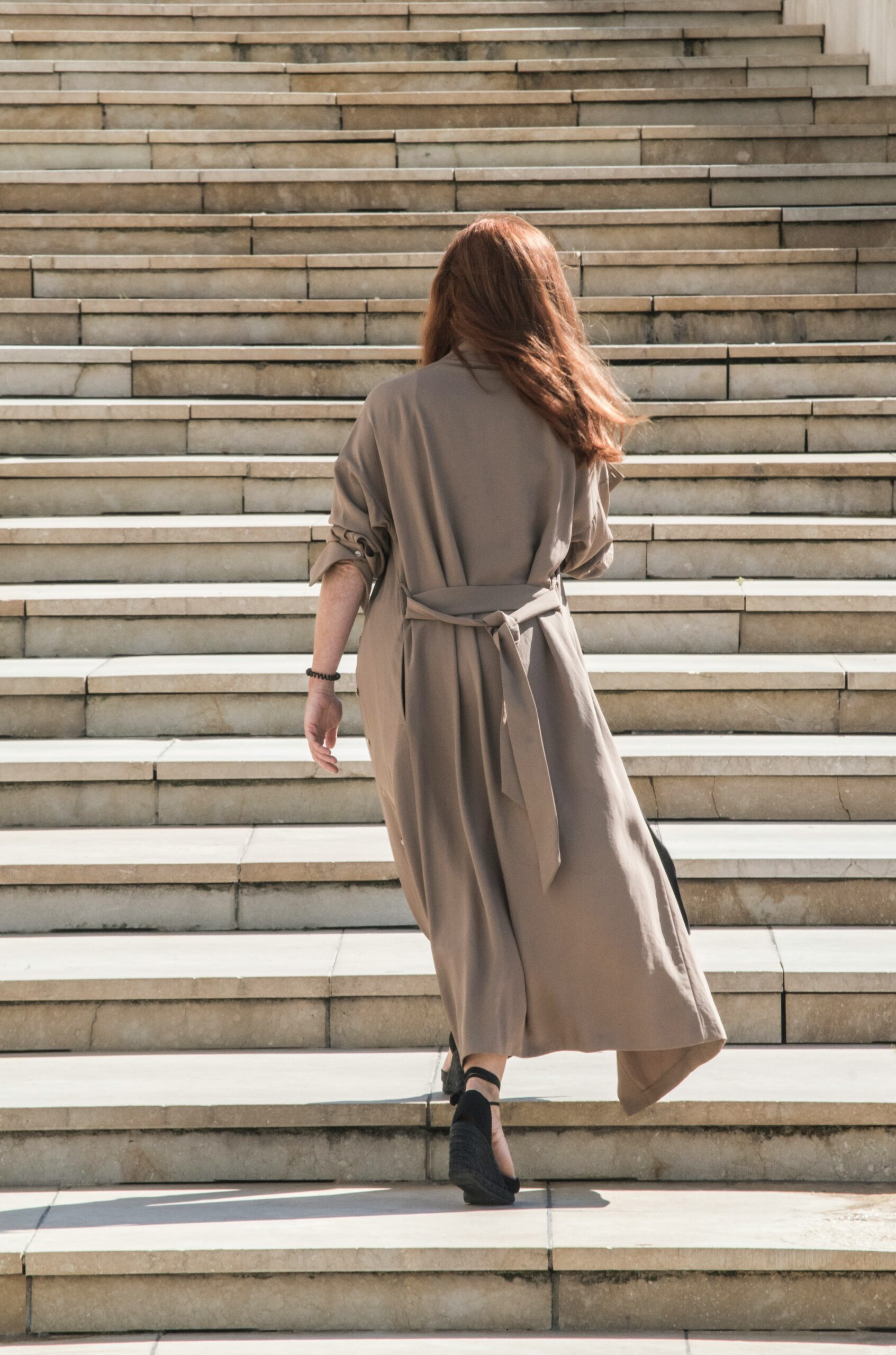
What A Week Without Taking Photos Revealed About My Life
My husband and I stood in our backyard and stared in awe at the rare glimpse of aurora borealis that had trickled far enough south to stun our community. Neither of us had a phone or camera in hand, we simply witnessed the universe’s dance and witnessed each other taking it all in.
The next morning, my social media feed was flooded with photos from friends and strangers posting proof of their experience. As with most things, especially the artistry of the sky, photos didn’t do it justice. I found myself feeling a bit thankful that I hadn’t had a camera handy for once. The moment felt like a special secret, enriched by its fleeting nature.
“The moment felt like a special secret, enriched by its fleeting nature.”
Later that week, I leaned on the doorframe and chatted with my dad as my daughters toddled around the playroom. Photos of the grandkids, and myself as a child, filled the wall and I knew there were about two dozen chunky photo albums one room away that chronicled the entirety of my childhood — and my extended family’s life — long before I was born.
“Do you ever wish you had more photos of your life and of us as kids?” I asked him. Despite the wall and shelf space dedicated to these captured moments, my parents’ collection of images felt miniature compared to what is housed in the device in my pocket. Last time I checked, my phone had 42,856 images documenting the last eight years. It’s not uncommon for me to snap three dozen photos of an ordinary day.
Kids are moving targets so it can take multiple attempts to get a single decent photo, but my busting camera roll is the result of a deeper ubiquitous human condition: I don’t want to lose a single moment. If time is slipping through my fingers like sand, photos feel like a way to calcify it into concrete. But the urgency I felt to document every second was starting to make me wonder what I was trading for that peace of mind.
“If time is slipping through my fingers like sand, photos feel like a way to calcify it into concrete.”
For a few months, I’d been growing increasingly aware of my habit of over-documenting my life (and consequently my daughters’ childhoods). Part of me wanted to stop and bask in the present more purposefully, but I was afraid that some future version of myself would be riddled with regret over the moments that I allowed to slip into the vortex of ever-changing life. Photos are one of the sole insurances to preserve treasured details from my fallible memory.
My dad paused thoughtfully before responding to my question. “Can you ever have enough photos of your kids? Probably not. You want all the memories captured, but no I don’t think I wish I had more. It takes you out of the real moment with them to take photos. There’s a cost.”
His reply confirmed my suspicions. I was robbing my present-moment self to give a gift to my future self. I decided to start an experiment the next morning and go one full week without taking any photos.
My week without taking photos
There was a tinge of panic on the first day when I realized something particularly cute was happening. A bubble machine had been placed at the park and the kids danced among the glowing orbs in the late afternoon sun. My body tensed up as I resisted the urge to pick up my phone. I felt a wave of anxiety that this perfect sight would live nowhere but my mind once it had passed. But once I released that feeling, I noticed myself relaxing into the moment and appreciating the subtle details of our day with far more intricacy.
“I felt a wave of anxiety that this perfect sight would live nowhere but my mind once it had passed.”
That evening, I instinctively reached for photos to show my husband our day only to realize there was nothing there. Instead, I worked to recall the memories myself and paint a picture for him with words.
As the days progressed, that tension of missing out on capturing beautiful moments released more rapidly each time until it wasn’t there at all. What replaced it was a sense of grounded joy. By mid-week, I noticed myself growing quite accustomed to not taking pictures or videos. I no longer reached for my phone – even though it crossed my mind during my daughter’s unbelievably darling dance class. My relationship with my kids had more ease in it as they sensed my presence without any “Say cheese! Look here!” commands interrupting our flow.
“As the days progressed, that tension of missing out on capturing beautiful moments released more rapidly each time until it wasn’t there at all.”
My daughter did ask for a photo to be taken on the last day of the experiment. She wanted a picture with the giant polar bear poster she’d spotted at the zoo. It struck me that this was the first time she requested anything documented in a whole week. Though my kids are easily the subject that I direct my camera toward most often, they don’t care about capturing the present nearly as much as I do. (My husband obliged her with a photo and we happily went about our day.)
I wonder how many times my girls have noticed me filming them even when I’m not interrupting their activities by requesting a smile. Since the day they were born, the phone between our faces as I dutifully document their adorable antics has been such a common sight that I wonder how it’s shaping the way they see their role in their own experiences.
Someday I am sure they’ll be happy to have images of childhood to reminisce over. However, the act of creating these images is, in many ways, an act of performance in the moment. Even if the audience is only our future selves, I want my children to know that they can be free from that metaphorical stage. I want them to trust that every experience they have is worthwhile, even if no one else will bear witness to it. I yearn for them to know that their bodies are the most valuable vessels their memories could ever exist in. I suppose I desire this so intensely for them because I recognize how much I need this lesson.
How I learned to let my memory be enough
Though my experiment was over, I ended up enjoying a few additional days with no photos because I was savoring this “new” way of living. Once I started taking photos again, I slowly slipped back into a frenzy of capturing more than I could ever need. This false perception that we can harness time as it gallops by and usher it into a stall to be escorted out later on is certainly addicting.
The few times I’ve tried to put together a printed photo album of our life in recent years, I’ve become overwhelmed. I have more images than I know what to do with. This prompts the question, who am I really capturing these images for? Are we — myself or my children — even going to want to sift through all of them or will we be too busy trying to capture whatever future memory we’re in? In the case of photos, it seems excess might be almost as problematic as lack.
“Though it may seem a sturdier steel trap than my brain, the phone could never replace my own body as a vessel for memories.”
I realize I’ve been acting as though I can deposit the moments that drift by into a bank for my future self to cash out on, but reality doesn’t work that way. Though it may seem like a sturdier steel trap than my brain, the phone could never replace my own body as a vessel for memories. I now realize how I’ve often trusted it more than I’ve trusted myself. But, on deeper reflection, my phone was never here the way I was. It didn’t feel the sand between its toes, it didn’t feel its heart quicken, it didn’t live the moment the way my body did.
Ironically, I have much clearer memories of my week without photos than I do of the many weeks that I’ve stuffed into my camera roll out of fear of forgetting. I compare the two different ways I’ve absorbed memories recently:
In the first version, I notice something that I want to remember and reach for my phone instead of looking closer or feeling deeper. This act of preservation actually cuts off my own senses and momentarily outsources my experience to something outside of me.
In the second approach, I notice something that I want to remember and I sink into the moment. I look at what’s caught my interest and I look at the things around it, I inhale to attach a smell to the sight. It feels as if time stands still for a moment as I release it to rush through me.
Thoreau said, “The price of anything is the amount of life you exchange for it.” Though I will undoubtedly continue to take photos, I now do so knowing that each time I am exchanging real life for them. Paying for images by stepping out of the fleeting here and now is a higher price than I’d previously calculated.
“Thoreau said, ‘The price of anything is the amount of life you exchange for it.'”
Aware that even my most vivid memories will soften as my mind fills and fades in the coming decades, I’m faced with the question: Were those moments worth it even if I forget them in part or entirely? After living a week without photos, my answer to that is an unequivocal yes. Even if I forget them all, I can rest in the satisfaction that I fully lived those moments with every sense I’ve been privileged to feel in the present.
Ellie Hughes is a Contributing Editor at The Good Trade. She spent several years as a sustainable fashion blogger and leading the marketing for brands aiming to operate with ethics and the environment as their priority. She is now a freelance writer and marketing consultant living in Portland with her husband, two young daughters, and corgi.




